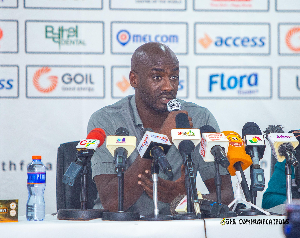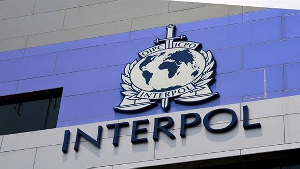Supreme Court Judge Thrashes Cocaine C'ttee
Accra, Friday, 29 Sept (Chronicle) -- The nearly six-week investigations into landmark cocaine scandals by the Justice Georgina Woode Committee may turn out to be a boondoggle, as a retired Supreme Court Judge has discredited the legitimacy of the Committee and described it as an unconstitutional entity.The former Supreme Court Justice, Mr. Justice Charles F. Hayfron-Benjamin, who indicated his position on the Committee in a letter to the editor (yet to be published), told The Chronicle in an interview yesterday that by virtue of the unconstitutionality of the Committee, it lacked the capacity to make recommendations for the prosecution or sanctioning of any of the people who appeared before it.
He consequently described the work of the Committee as an exercise in futility and stressed that it would be legally wrong for the Attorney-General (AG) to use the findings of the Committee as the basis for prosecuting any of the witnesses who appeared before it.
The revelation by the retired Supreme Court Judge may possibly give a new twist to the investigations and the recommendations of the Committee, which are expected to be made public later today by the AG, Mr. Joe Ghartey, and the Interior Minister, Mr. Albert Kan-Dappah.
Justice (Rtd.) Hayfron-Benjamin, a former Director of Continuing Judicial Education, argued that Ministers of State have no powers under the 1992 constitution to appoint or constitute a Committee of Inquiry to look into a national issue like the cocaine scandal, as was the Justice Woode Committee.
He pointed out that Article 295 of the constitution defines “Commission of Inquiry” as including a “Committee of Inquiry” and added that Commissions of Inquiry are governed under Chapter 23 of the 1992 Constitution.
Continuing his argument, the former Supreme Court Judge noted that it is explicitly stated in Article 278 (1) of the Constitution that the President shall by a constitutional instrument, appoint a Commission of Inquiry to look into any matter of public interest and that the conditions for appointing such a commission are clearly spelt out in the constitution. Speaking to the paper from his Kumasi base, he was very categorical that Ministers do not have the power to set up Committees of Inquiry on matters of public interest with national dimensions as was done by the Interior Minister, Mr. Albert Kan Dapaah, in setting up the Georgina Woode Committee to investigate the cocaine scandal, which he said is clearly an issue of public interest.
The Attorney-General and Minister of Justice, Mr. Joe Ghartey, was censured by the retired Supreme Court judge for “not advising the President rightly on his duties under the 1992 Constitution.”
He expressed surprise that even though it was clear that the Georgina Woode Committee was not set up by the President as required by the Constitution, the Committee, chaired by Mrs. Woode also a Supreme Court judge, “propelled itself into muddy waters and knows not where it may land”.
Justice Hayfron-Benjamin contended that since the Committee was not set up in accordance with Article 278 (1) of the constitution, the government would not be able to legally carry out its proposals and recommendations and would not also be in the position to issue a White Paper on the Committee’s work as required by Article 280 (3) of the constitution.
The retired Supreme Court Judge did not only take issue with the Georgina Woode Committee and the AG; he also condemned the conduct of lawyers who represented some of the witnesses who appeared before the Committee.
He said these lawyers acted in breach of the ethics of the legal profession because most of the counsels gave a lot of publicity to issues involving their clients, contrary to the ethics of the profession, which requires lawyers to as far as possible give less publicity about pending matters in which they are interested.
In his letter to the editor, he stated, “It is most unheard-of that lawyers should address in writing a set of questions for the adjudicating or enquiring committee or quasi-judicial body to answer”, ostensibly referring to the set of questions that were submitted to the Committee by the legal team of ACP Kofi Boakye led by Lawyer Joe Aboagye Debrah.
















